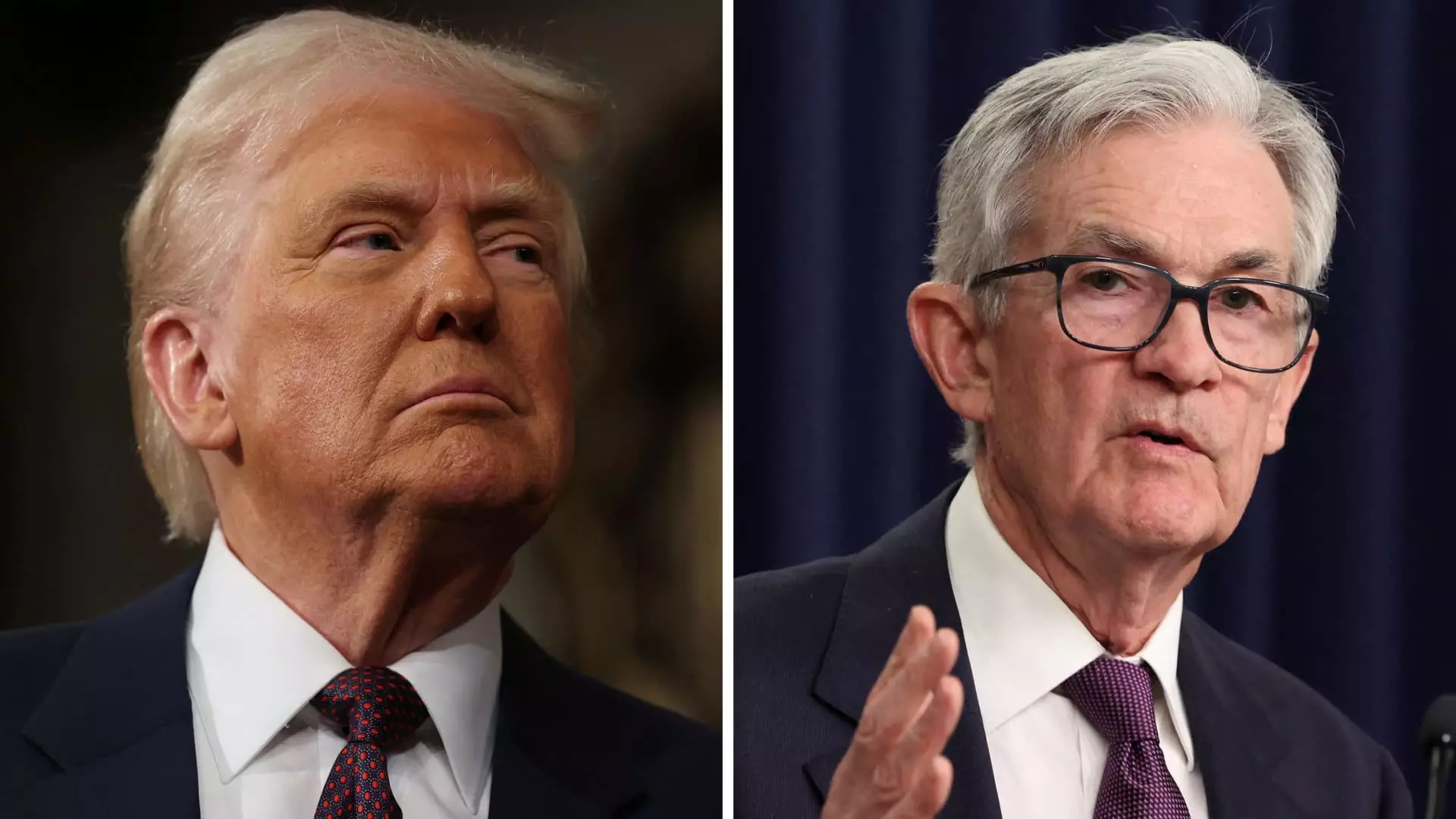Former President Donald Trump’s ongoing critiques of Federal Reserve Chair Jerome Powell reveal an alarming pattern that challenges the independence of the central bank. Recently, Trump took to Truth Social, once again advocating for rate cuts that align with his economic vision while throwing subtle threats at Powell’s position. Such rhetoric not only raises eyebrows but also poses serious questions about the respect for institutional integrity in American politics. When Trump broadcasts his desire to “terminate” the Fed chair, it signals a dangerous precedent that undermines the effectiveness of monetary policy, which should function free from political meddling.
A Risky Game of Economic Chess
There’s an undeniable urgency around economic growth, especially as the European Central Bank flexes its monetary muscle by cutting rates in hopes of stimulating its struggling economy. Yet, while countries on the other side of the Atlantic take proactive measures, President Trump seems to misjudge the complexities of the U.S. economic landscape. Powell, in his recent address, highlighted the balancing act the Fed must perform; weighing the need to control inflation against the impulse to encourage growth. Trump’s simplistic call for cuts overlooks the intricate web of policies and external factors that influence central banking decisions. His insistence on immediate action reveals a frustration that could lead to repercussions for everyday Americans and the broader economy.
Echoes of Autocratic Tendencies
What stands out starkly in this scenario is the echo of autocratic tendencies in Trump’s approach. When he threatens Powell with dismissal, he mirrors the dismissive attitudes of leaders who prioritize stable loyalty over professional competence. Powell has repeatedly asserted his will to maintain the autonomy of the Federal Reserve in the face of external pressures, a reminder that the institution was designed to weather political storms. However, the alarming undertone of Trump’s statements invites parallels with regimes that have politicized their central banks, leading to disastrous economic consequences.
Where Are the Checks and Balances?
The uproar surrounding Trump’s veiled threats raises an important question about the current state of checks and balances in U.S. governance. As Trump dismissively calls Powell “always late” and demands immediate interest rate adjustments, we must remember that using populist assertions to drive economic policy development can create instability. The appointment of someone to the Federal Reserve should arise from competence and experience, not from fear of political retribution. If the ethos of sound economic policymaking is sidelined, we risk sabotaging the foundational stability that can lead to sustainable growth.
The Importance of Expertise in Monetary Policy
In a rapidly changing economic environment, expert opinions and analyses should hold pivotal weight, deserving of respect rather than ridicule. Powell’s comments about tariffs and the Fed’s response each underscore the need for a well-thought-out strategic approach, contrary to Trump’s emphatic, impulsive demands. By reducing complex economic discussions to mere sound bites, we distance ourselves from the informed discourse that can pave the way toward resilient economic solutions.
As we navigate these turbulent waters, it becomes imperative to advocate for independence and proficiency in economic governance over pandering to short-term populist whims. The lines drawn in the sand during this ongoing skirmish surrounding monetary policy will have lasting repercussions—both politically and economically.


Leave a Reply